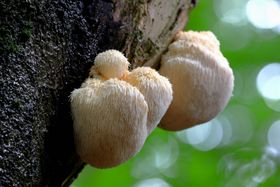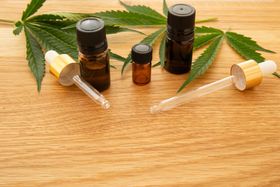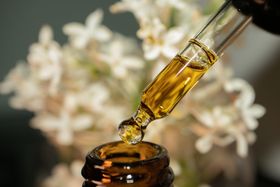Can You Effectively Use CBD for COPD?
Published July 17, 2021.

Chronic obstructive pulmonary disease (COPD) is a type of long-term lung disease that can cause other disabilities and potentially early death. It is sometimes referred to as emphysema or chronic bronchitis. Though it may be incurable, it is treatable and often preventable.
Since it is characterised by inflammation of the airways in the throat and lungs, there are those who believe that various CBD and cannabis oils can be used to assist in the treatment of COPD. When deciding whether or not you should take CBD oil to help with COPD, there are many things you have to take into account. As with all conditions and CBD products, you have to consider the method of application and the dosage, among other factors.
While there may not be a definitive yes or no answer for such a complicated topic, there are some principles you can use to help you make your decision.
Does CBD Oil Help COPD and Lung Disease?
While there might be no concrete evidence that the use of CBD products - either ingested, inhaled, or topically applied - can directly treat COPD, there may be some other potential benefits.
CBD May Exhibit Anti-Inflammatory Properties
There is a fair amount of scientific evidence to suggest that CBD can reduce general inflammation throughout the body. One of the symptoms of COPD is a respiratory infection that causes an excess build-up of inflammation in the airways. This leads to increased coughing, which causes even further build-up of inflammation.
This inflammation doesn't decrease naturally, and so one of the treatments for COPD is anti-inflammatory drugs. As such, adding CBD or cannabis oil to other COPD treatments could strengthen the body's ability to break down inflammation and help the condition become more manageable.
CBD May Act as an Analgesic
There is some scientific evidence to suggest that CBD may also exhibit analgesic (pain-relieving) properties in certain circumstances. Although the evidence of this alone isn't enough to advocate for the treatment of COPD with CBD, it may be a potential secondary benefit in certain individuals.
CBD May Cause Vasodilation
Some studies also suggest that CBD may operate as a broncho-and-vaso-dilator, relaxing the airways and blood vessels to potentially reduce blood pressure and make breathing easier.
Using CBD Oil for COPD and Lung Disease
Even though the inherent benefits of CBD don't change that much across the different methods of application, there are some that could have more potential adverse reactions than others. Since the nature of COPD is that of lung disease or respiratory infection, it is clear that certain methods of CBD use would be more beneficial than others.
In addition, it's important to understand that it may not necessarily be feasible to treat COPD with CBD alone, but rather that there may be more benefit in adding CBD to existing COPD treatments.
Why You Shouldn't Inhale CBD for COPD
Even though there is some anecdotal evidence to support the belief that inhaling CBD - either by vaping the e-juices or smoking the buds - might reduce respiratory issues in the short term, the potential disadvantages far outweigh these benefits. Inhaling anything other than air can aggravate the throat and lungs and lead to an increase in inflammation, and the potential for coughing could even further exacerbate this.
There is also debate in the CBD community about a potential CBD solution for a nebulizer or diffuser, but this should also be avoided. Nebulizers work by converting liquid medication into fine droplets (aerosol spray) that can be easily inhaled. CBD oil, which is hydrophobic in nature, would therefore not be as effective as other medications when taken in this manner. In addition, CBD that exists in an alcohol-based solution could aggravate and damage the lungs when inhaled through a nebulizer.
Using CBD Tinctures, Oils, and Edibles for COPD
The main benefit to using any of these CBD products is the fact that the duration of effects is much longer than other methods, with little variation in their consumption.
CBD "tincture" and "oil" are often used interchangeably, but they are actually different products. In oils, CBD is extracted using carbon dioxide, while in tinctures, CBD is extracted in an alcohol-based solution. CBD oils are generally more potent than tinctures, while tinctures generally have a longer shelf-life.
Despite their differences, both products can be taken sublingually, which means holding the solution under your tongue for at least 30 seconds to allow the CBD to diffuse through the tissue and into your bloodstream. This allows for the fastest onset of effects (excluding inhalation) as well as a relatively high bioavailability compared to other methods.
CBD edibles, on the other hand, can be anything from cookies to gummies that have CBD oil incorporated into them. Although this method utilises your body's metabolism (and therefore has the longest-lasting effect), they also have a comparatively lower bioavailability than CBD taken sublingually. The benefit to edibles is that some individuals may be averse to the taste or texture of oils and tinctures.
Can Topical CBD Oils Relieve COPD?
CBD topicals, be it creams, lotions, or oils, are simply topical products that have CBD oil mixed into them. They can be applied externally, whereupon the CBD will diffuse through the skin and into the bloodstream. In truth, topical application has the lowest bioavailability of all methods but could be added to other COPD treatments to potentially reduce inflammation in a localised area.
In Conclusion
Although there is much debate over whether or not CBD products can assist in dealing with symptoms of COPD, there is a relatively low risk associated, so you might as well give it a shot. As long as you choose a method that won't aggravate the lungs, and you start with a low dosage and work your way up slowly, you should be safe to start the process of figuring out the combination that works for you.
That being said, you should always check with your doctor before starting as they could give you some more insight, especially if you are on other medications.







